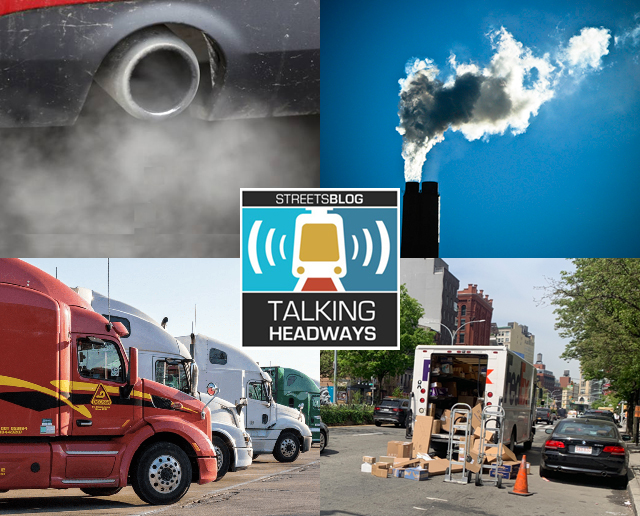This week we’re joined by Hamilton Steimer of the World Resources Institute to talk about their report, Zero-emission Delivery Zones: A New Way to Cut Traffic, Air Pollution and Greenhouse Gases. We chat about electrification of fleets, what cities have the best programs for ZEDZ, and the current moment in urban delivery.
Listen here, on Libsyn, or anywhere else you get your podcasts. A full, edited transcript is available here — and a shorter version is below.
Jeff Wood: A potential solution to some of the issues that we’re seeing and m —aybe to speed up some of this electrification of fleets or at least in certain areas — is the zero-emission delivery zone. What specifically is a zero-emission delivery zone as it’s defined?
Hamilton Steimer: I have to give a little bit of background context before getting into the definition. If you look across, you know, you may have a Europe based audience or not, but if you go to Europe, you may hear "low emission zones." That’s something that’s much more familiar, especially within Europe. These are designated areas within cities, typically at the city center, where vehicles have to meet certain emissions requirements in order to enter, or they may have to pay a fee or something like that. So zero-emission zones are kind of seen as the next step, where now to enter the area you have to have a zero-emission vehicle.
Zero-delivery zones are a subset of zero-emission zones. The way we describe define a zero emission delivery zone is, it's a designated area targeting delivery vehicles that, in which to have unlimited road access, need to be zero-emission.
Jeff Wood: From a policy perspective, why would you wanna focus on deliveries only and not just make it a, you know, low traffic zone or whatever? Why wouldn’t you just make it blanket rather than just freight?
Hamilton Steimer: A lot of the early development regarding this policy is in Europe, as I mentioned, particularly within the Netherlands in 2019, and their national climate plan. I think they require between 30 and 40 cities to implement zero emission zones by 2030. A lot of these cities, you know, obviously those zero mission zones that will be implemented will cover all types of road traffic. Right now, as they kind of take those initial steps, they’re thinking, "EVs are still very expensive. We don’t necessarily have the infrastructure for everyone to transition," you know, "What is a more manageable market aspect that we can target?"
For them they’re targeting this delivery freight sector, which, you know, historically they’ve targeted with their low emission zones.
There’s a lot of policy work targeting the freight sector historically. So for them it’s a more manageable. It's not easy. It’s a more manageable, kind of, first step to target them, see how it goes, start developing that infrastructure, [and] start to understand what are the pros and cons of the policy itself before then later ramping it up to the larger vehicle market.






